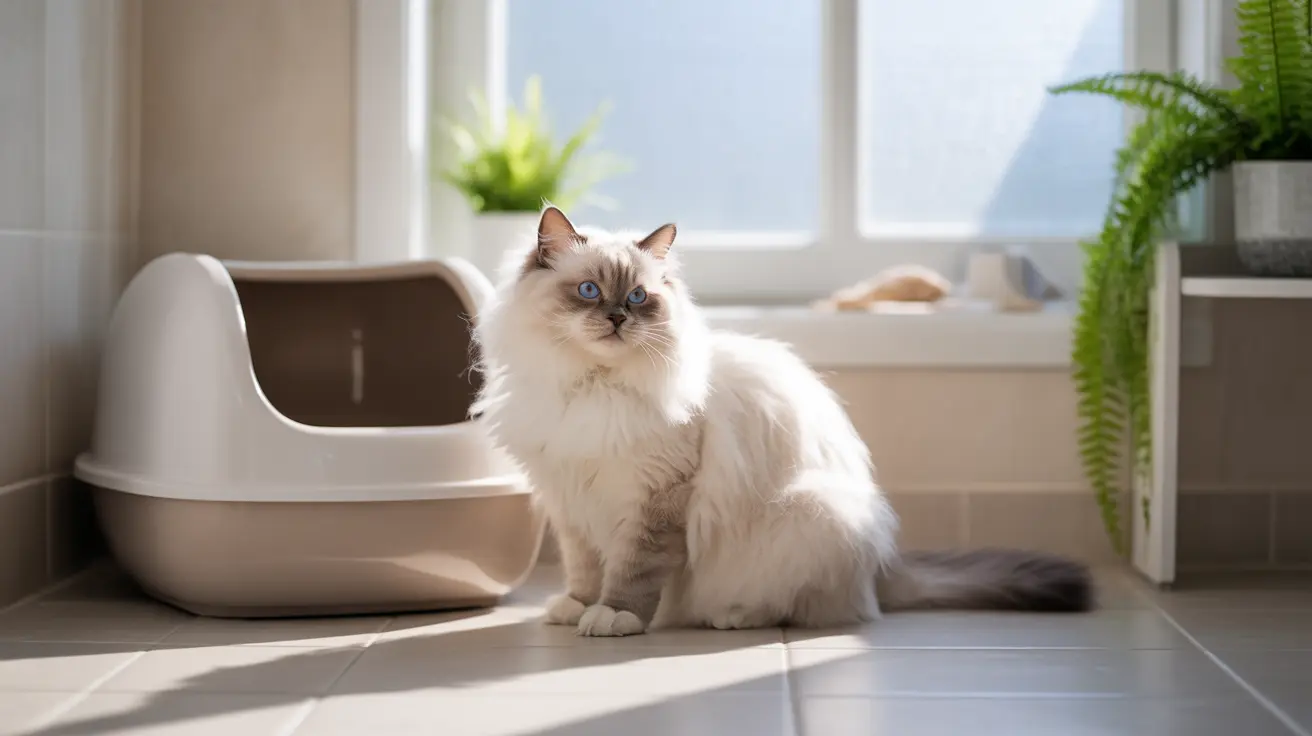Discovering that your elderly cat has started pooping on the floor can be both concerning and frustrating. This sudden change in behavior is often a cry for help, signaling underlying health issues, environmental challenges, or age-related conditions that require attention. Understanding why this happens and how to address it is crucial for both your cat's wellbeing and your home's cleanliness.
In this comprehensive guide, we'll explore the various reasons behind this behavior change in senior cats and provide practical solutions to help resolve the issue. Whether it's a medical condition, mobility problem, or environmental factor, we'll help you identify the cause and take appropriate action.
Common Medical Causes of Floor Pooping in Elderly Cats
Arthritis and Joint Pain
One of the most common reasons elderly cats start pooping outside the litter box is arthritis, affecting up to 90% of cats over 12 years old. Joint pain can make it difficult for your cat to climb into the litter box or maintain a proper position while defecating. Many cats will opt for a flat, easily accessible surface instead of dealing with the discomfort of entering their litter box.
Digestive System Issues
Senior cats frequently develop digestive problems that can lead to inappropriate elimination. These may include inflammatory bowel disease (IBD), constipation, or diarrhea. When cats experience urgency or discomfort, they might not make it to the litter box in time, resulting in accidents on the floor.
Behavioral and Environmental Factors
Cognitive Dysfunction
Just like humans, cats can develop cognitive issues as they age. Feline cognitive dysfunction, affecting over 35% of cats aged 12 or older, can cause confusion about litter box location or proper elimination habits. Your cat might simply forget where the litter box is or become disoriented on the way there.
Stress and Anxiety
Elderly cats are particularly sensitive to environmental changes. New pets, moving furniture, or changes in household routine can trigger anxiety-related elimination issues. Even subtle changes that might seem insignificant to us can be deeply disturbing to a senior cat.
Solutions and Management Strategies
Modifying the Litter Box Setup
Make the litter box more accessible by:
- Using boxes with low sides for easy entry
- Placing multiple boxes throughout the house
- Keeping boxes on every floor of your home
- Ensuring boxes are in quiet, easily accessible locations
Medical Intervention
Work with your veterinarian to:
- Diagnose and treat underlying medical conditions
- Manage pain and inflammation
- Address digestive issues
- Consider supplements or medications as needed
Environmental Adjustments
Create a senior-friendly environment by:
- Installing night lights near litter boxes
- Maintaining consistent daily routines
- Using pet steps or ramps if needed
- Keeping pathways clear and obstacle-free
Frequently Asked Questions
Why is my elderly cat suddenly pooping on the floor instead of the litter box?
This behavior usually stems from medical issues like arthritis, digestive problems, or cognitive dysfunction. It can also be caused by stress, anxiety, or difficulty accessing the litter box. A veterinary examination is crucial to determine the exact cause.
How can arthritis or mobility issues cause an older cat to avoid the litter box?
Arthritis makes it painful for cats to climb into high-sided boxes or maintain proper posture while eliminating. This discomfort leads them to seek easier alternatives, like flat floor surfaces.
What medical conditions should I consider if my senior cat is defecating outside the box?
Common medical conditions include arthritis, inflammatory bowel disease, constipation, hyperthyroidism, diabetes, and cognitive dysfunction. Any sudden change in elimination habits warrants a veterinary consultation.
How can I adjust the litter box setup to help an elderly cat with pooping accidents?
Use low-sided litter boxes, provide multiple boxes throughout your home, ensure easy access, and maintain clean boxes. Consider using senior-specific litter that's gentle on sensitive paws.
When should I take my older cat to the vet for pooping problems on the floor?
Schedule a veterinary visit as soon as you notice this behavior change, especially if it's sudden or accompanied by other symptoms like changes in appetite, weight loss, or visible discomfort.
Conclusion
While finding your elderly cat's poop on the floor can be distressing, remember that this behavior usually indicates an underlying issue that needs attention. By working with your veterinarian and making appropriate environmental modifications, you can help your senior cat maintain proper litter box habits and ensure their comfort in their golden years.






